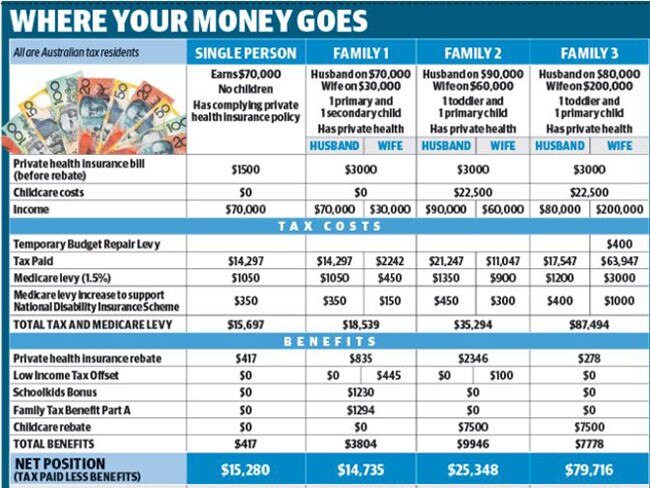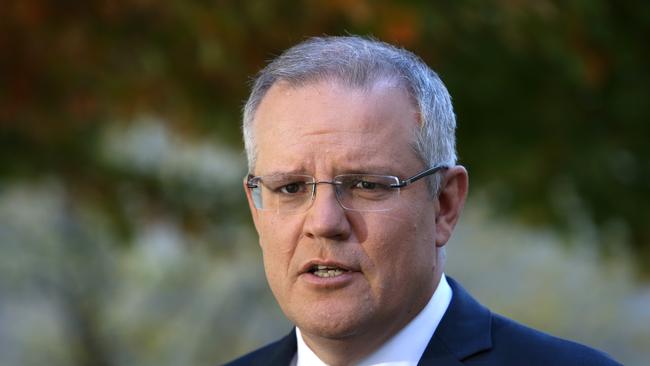Federal Budget 2016/17: Middle income families pay $168-a-week welfare bill
MIDDLE-income families will pay up to $168 a week toward the cost of pensions and payments to families, the unemployed, retirees and veterans.
VIC News
Don't miss out on the headlines from VIC News. Followed categories will be added to My News.
- Melbourne Metro to get $857m in Federal Budget
- Federal Budget unlikely to bring many Aussies tax relief
MIDDLE-income families will pay up to $168 a week toward the cost of pensions and payments to families, the unemployed, retirees and veterans.
As government debt rises, average-wage-earning families will also pay more than $17 a week — more than $900 a year — as their share of the interest bill on the nation’s borrowings,
An analysis of federal coffers by The Tax Institute found families earning $150,000 a year will pay more than $8700 a year for social security — more than double the amount that goes toward healthcare.
A family of four on a combined income of $100,000, where one partner earns $70,000, will contribute more than $5000 a year to social security, or about $100 a week.
That same family will contribute about $45 a week for health, $21 for education, $17 for defence and $10 a week paying off Australia’s interest debt — more than double the amount paid in 2013.
The average childless single worker earning $70,000 will pay $15,697 a year in tax in 2015-16. About a third — $5280 a year, or $102 a week — goes toward welfare.

In 2013, a single worker on $70,000 contributed $5.64 as their share of the nation’s credit card bill.
That’s almost doubled to more than $10 a week.
Treasurer Scott Morrison will be under renewed pressure tomorrow to slash the country’s ballooning $150 billion welfare bill.
Of the Commonwealth’s annual expenditure of $434 billion, 35 per cent is now spent sustaining the safety net.
The age pension, family payments and the disability support pension account for about 30 per cent of the welfare bill.
Unemployment payments cost about $11.5 billion per year — or 3 per cent of annual expenditure.

As net debt nears $300 billion, the interest bill in 2015-16 is more than $15 billion — about half of the total amount spent on education.
On the eve of his first Budget, Mr Morrison told the Herald Sun the debt would continue to increase while there was a Budget deficit.
“We will continue to make inroads into the deficit, and once you’ve dealt with the deficit, then obviously you can make inroads into the debt,” Mr Morrison said.
“We have dramatically slowed the rise in the debt by attacking the deficit.
“And we will continue to do that over the Budget and forward estimates,” he said.
The Treasurer also left open the possibility for welfare reforms, saying the government would “protect” the safety net to “ensure it’s sustainable”.
A review of welfare payments by the former chief of Mission Australia, Patrick McClure, called for an overhaul of the system.
This would include a major shake-up of the disability support pension.
Mr McClure also called on the Commonwealth to follow New Zealand’s lead and provide more focused assistance to those who needed it.


